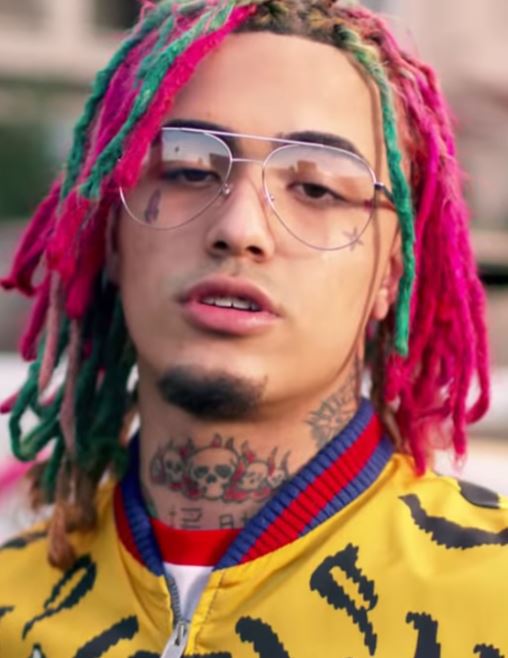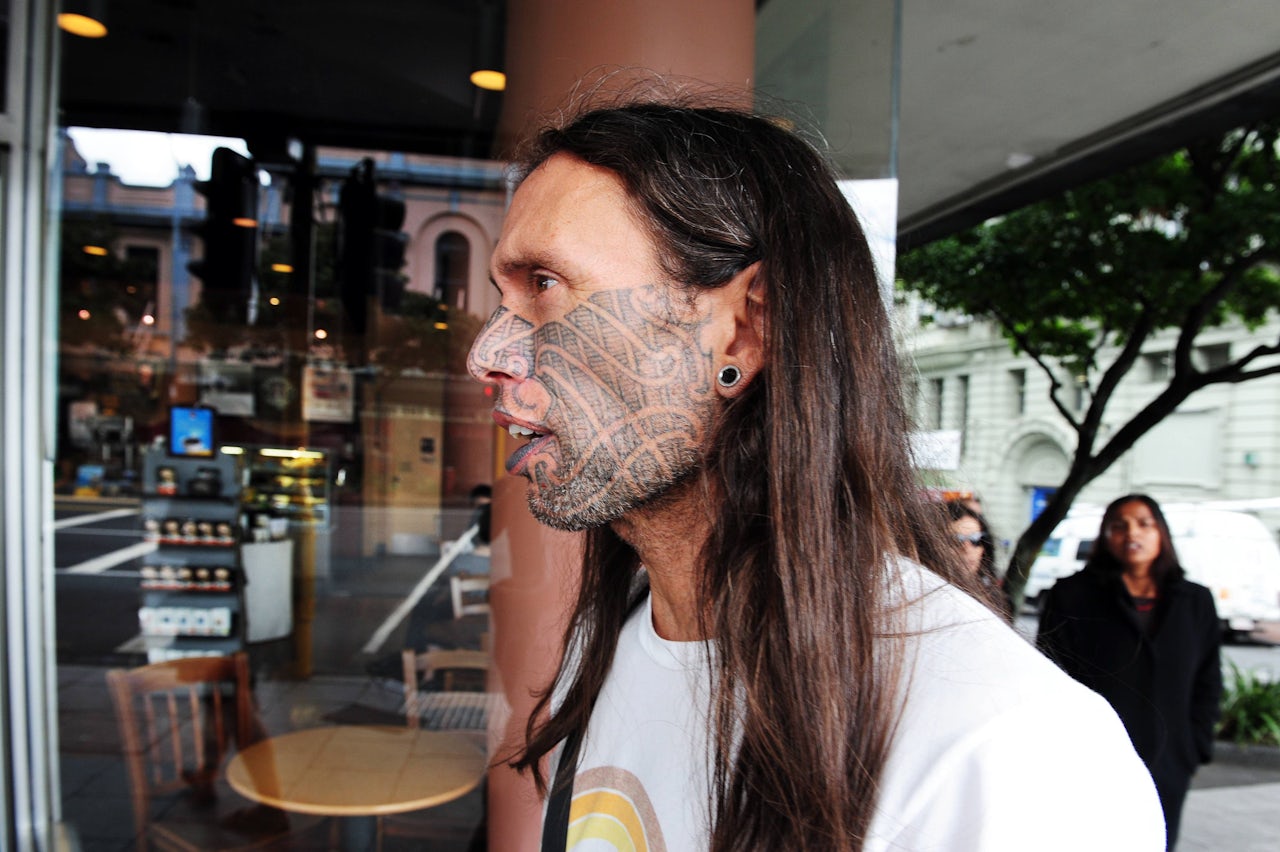When you think of rappers, you probably picture flashy chains, hoodies, and maybe some aggressive lyrics. But what about a white rapper with face tattoos? Yeah, that’s a game-changer, my friend. We’re diving deep into the life, music, and influence of one of the most talked-about artists in the rap scene today. If you’ve ever wondered who this guy is and why his style is so unique, you’re in the right place. This article will give you all the details you need, straight up, no sugar-coating.
You might’ve seen him on social media or even in music videos—his face tattoos are hard to miss. In a world where artists are constantly pushing boundaries, this rapper stands out for all the right reasons. His music isn’t just about beats and rhymes; it’s about telling stories, challenging norms, and inspiring others to embrace their true selves.
Now, before we dive into the nitty-gritty, let’s talk about why this topic matters. If you’re into music or pop culture, understanding the rise of unconventional artists is crucial. It’s not just about entertainment—it’s about representation, authenticity, and breaking stereotypes. So, buckle up because we’re about to take you on a journey through the world of a white rapper with face tattoos.
Read also:Who Is Rivers Married To Unveiling The Love Story Behind The Spotlight
Who Is This White Rapper with Face Tattoos?
Let’s start with the basics. The rapper in question is none other than Machine Gun Kelly, or MGK as he’s commonly known. While he’s been around for years, his recent transformation into a rockstar-inspired rapper with bold face tattoos has taken the world by storm. But who exactly is he? Born on April 6, 1990, in Hudson, Wisconsin, MGK has always been a trailblazer in the music industry.
Biography: From Hudson to Hollywood
Before he became a global sensation, MGK was just a kid from Wisconsin with a dream. He started rapping at a young age, inspired by artists like Eminem and Lil Wayne. His early years were filled with challenges, but he never let them define him. Instead, he used his experiences to fuel his creativity and build a career that defies labels.
Here’s a quick look at his journey:
- Born Christopher Adam Colfer in 1990
- Started rapping in high school
- Released his debut album "Lace Up" in 2012
- Began experimenting with rock influences in his music
- Got his first face tattoo in 2020
MGK's Face Tattoos: A Symbol of Identity
Now, let’s talk about those iconic face tattoos. They’re more than just ink—they’re a statement. MGK’s tattoos represent his evolution as an artist and a person. They symbolize his commitment to authenticity and his willingness to embrace who he truly is, no matter what others think.
What Do the Tattoos Mean?
MGK’s face tattoos are a mix of personal and cultural symbols. Here’s a breakdown:
Read also:Mikayla Campinos Passes A Rising Star In The Spotlight
- The tear under his eye represents overcoming adversity
- The cross on his cheek symbolizes faith and spirituality
- The tribal patterns reflect his connection to his roots
These tattoos aren’t just decorative—they tell a story. They’re a reminder that art can be deeply personal and transformative.
His Music: A Fusion of Styles
MGK’s music is as unique as his look. He blends rap, rock, and pop into a sound that’s all his own. His lyrics often touch on themes of love, loss, and self-discovery, making them relatable to a wide audience.
Popular Songs and Albums
Here are some of his most notable works:
- "Till I Die" from the album "The Wild Heart" (2017)
- "Bloody Valentine" from the album "Tickets to My Downfall" (2020)
- "My Ex's Best Friend" featuring blackbear (2021)
Each song showcases his versatility and ability to connect with listeners on an emotional level.
Breaking Stereotypes in the Rap Industry
As a white rapper with face tattoos, MGK challenges the traditional image of what a rapper should look like. He’s proof that talent and authenticity matter more than skin color or appearance.
The Impact of Representation
Representation in music is crucial. By embracing his identity and sharing his story, MGK inspires others to do the same. He shows that there’s room for everyone in the rap scene, regardless of their background.
Collaborations and Influences
MGK has worked with some of the biggest names in music, from Halsey to Travis Barker. These collaborations have helped him expand his reach and explore new sounds.
Key Collaborations
- Halsey on "Doors" (2019)
- Travis Barker on "My Ex's Best Friend" (2021)
- blackbear on "My Ex's Best Friend" (2021)
These partnerships highlight his ability to collaborate across genres and bring fresh perspectives to his music.
MGK's Influence on Pop Culture
With his bold look and fearless attitude, MGK has become a cultural icon. He’s not just a rapper—he’s a trendsetter. From his fashion choices to his music videos, everything he does is a reflection of his personality and vision.
Fashion and Style
MGK’s style is as eclectic as his music. He often rocks leather jackets, chains, and bold makeup, proving that fashion can be a form of self-expression. His influence extends beyond music, inspiring fans to embrace their individuality.
Challenges and Criticism
No artist is without critics, and MGK is no exception. Some have questioned his authenticity as a white rapper, while others have criticized his face tattoos as being too extreme. However, MGK has always stood by his choices, emphasizing that art is about taking risks.
Responding to Critics
Instead of letting criticism define him, MGK uses it as motivation. He continues to push boundaries and create music that resonates with his audience. His fans, known as the "MGK Army," stand by him through thick and thin, proving that authenticity always wins.
Looking Ahead: What's Next for MGK?
With a successful music career and a growing fanbase, MGK shows no signs of slowing down. Fans can expect more music, collaborations, and perhaps even a foray into acting. Whatever he does next, one thing is certain—he’ll continue to inspire and innovate.
Future Projects
While details are scarce, MGK has hinted at new music and possibly a tour. Keep an eye out for announcements, as he’s always got something up his sleeve.
Conclusion: Embrace Your True Self
In conclusion, the story of MGK is a testament to the power of authenticity. As a white rapper with face tattoos, he’s shattered stereotypes and inspired countless fans around the world. His music, style, and attitude remind us that it’s okay to be different—to embrace who you truly are.
So, what’s next? Share this article with your friends, leave a comment, and let us know what you think. And if you haven’t already, give MGK’s music a listen. Trust me, it’s worth it.
Table of Contents
- Who Is This White Rapper with Face Tattoos?
- Biography: From Hudson to Hollywood
- MGK's Face Tattoos: A Symbol of Identity
- What Do the Tattoos Mean?
- His Music: A Fusion of Styles
- Popular Songs and Albums
- Breaking Stereotypes in the Rap Industry
- The Impact of Representation
- Collaborations and Influences
- Key Collaborations
- MGK's Influence on Pop Culture
- Fashion and Style
- Challenges and Criticism
- Responding to Critics
- Looking Ahead: What's Next for MGK?
- Future Projects
- Conclusion: Embrace Your True Self


